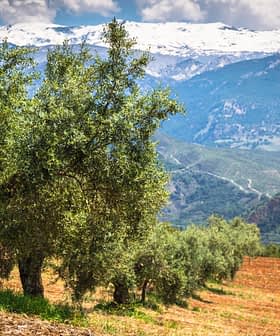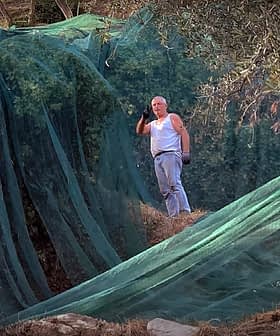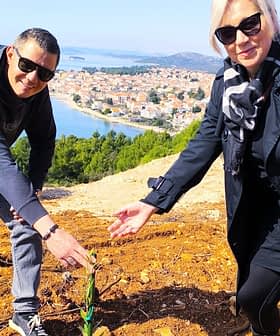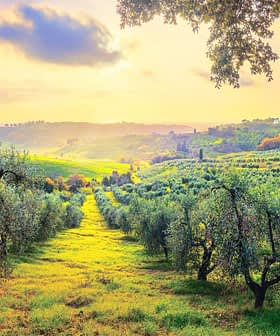Tourism Awards in Italy Promote Industry Innovators

The latest oleotourism competition in Italy involved hundreds of olive-related companies and entities, recognizing farmhouses, olive oil producers, millers, chefs, and local tour operators. The competition, sponsored by the Ministry of Agriculture and organized by Città dell’Olio, aims to promote oleotourism as the future of food tourism in Italy, rewarding those who invest in education and best practices.
Hundreds of olive-related companies and entities in Italy have taken part in the latest edition of an oleotourism competition in Italy.
Farmhouses, olive oil producers, millers, chefs and local tour operators have been recognized by the competition’s panel of judges.
These kinds of initiatives are crucial to give value to extra virgin olive oil, the heart of the Mediterranean diet, protect it from the attack that comes from Nutri-Score and combat the abandonment of the farming lands.
The competition was sponsored by the Ministry of Agriculture and organized by Città dell’Olio, an association that includes more than 400 olive-growing municipalities in Italy.
It began two years ago after the Italian parliament gave the final go-ahead to the national law promoting oleotourism, which is now fueling new initiatives across the country.
See Also:Olive Oil Tourism Venues“We had the chance to reach those who really believe in the olive oil tourism and work daily to build best practices destined to become an example for all,” said Roberta Garibaldi, a professor at the University of Bergamo, president of the jury and scientific director of the contest.
“Oleotourism is the future of food tourism,” she added. “We have the duty to reward those who want to be in it, who want to grow and be part of it and to invest more in education.”
Unaprol, the Italian olive oil producers’ association and one of the initiative’s partners, has already confirmed that the winning companies will also be offered free courses meant to explore and enhance oleotourism opportunities starting next year.
Among this year’s winners was Strada dell’Olio DOP Umbria, an association behind the Frantoi Aperti (open oil mills, in Italian) initiative, which celebrated its 25th edition of the event this year and is considered a pioneer in oleotourism.
Frantoi Aperti allows tourists, consumers and olive oil enthusiasts to take guided tours of the many mills in the central Italian region of Umbria and participate in tastings.
Tourists are also directed to other local destinations from the mill to discover the culture behind olive oil production further.
Paolo Morbidoni, president of the association, told Olive Oil Times how the open mills initiative is viewed as the “custodian of a thousand-year-old tradition that makes the mill a place of production and a communal space.”
He added: “Where the modernity of the spaces, the technological evolution, does not affect the social ritual, the tasting of new oil on bread, the sharing of wine, the spread of a collective culture that is the heritage of these rural areas, in which almost every family has its small olive grove and takes home its own olive oil.”
According to Morbidoni, the initiative “has transformed an agricultural event into a phenomenon of culture and pleasure” over time, which is “intimately connected, to the point of creating a lifestyle [where] there is a growing consciousness toward food which is not only good but also healthy and genuine both for our bodies and environment.”
In the restaurant category, another award went to the Il Frantoio in Assisi, Umbria. Chef Lorenzo Cantoni told Olive Oil Times that “extra virgin olive oil is the source of my cuisine.”
“Every year, I taste between 150 and 180 different extra virgin olive oils produced in our country, and my dishes come out of those discoveries,” he added. “Extra virgin olive oil is not only an ingredient of my cuisine. It is its original source.”
Cantoni explained how one of the dining rooms of the Assisi restaurant is conceived “to let the visitor feel as if they are walking among the olive trees in an olive grove. The design of the walls and tables was created with that goal in mind.”
Hanging on the walls are works of famous photographers that depict the olive trees where it is believed that Saint Francis of Assisi used to rest.
The competition’s jury specifically paid tribute to the restaurant’s experience baptized as “olive oil and its consistencies.”
“A declination of extra virgin olive oil which, thanks to the technique of Chef Cantoni, assumes new shapes and consistencies,” the judges wrote. “A cooking laboratory for olive oil, for its use, for it being an ingredient and not just seasoning.”
Meanwhile, Frantoio Pruneti, from Tuscany, won in the oleoteche (olive oil shop) category, with its Extra Gallery Cocktail Experience.
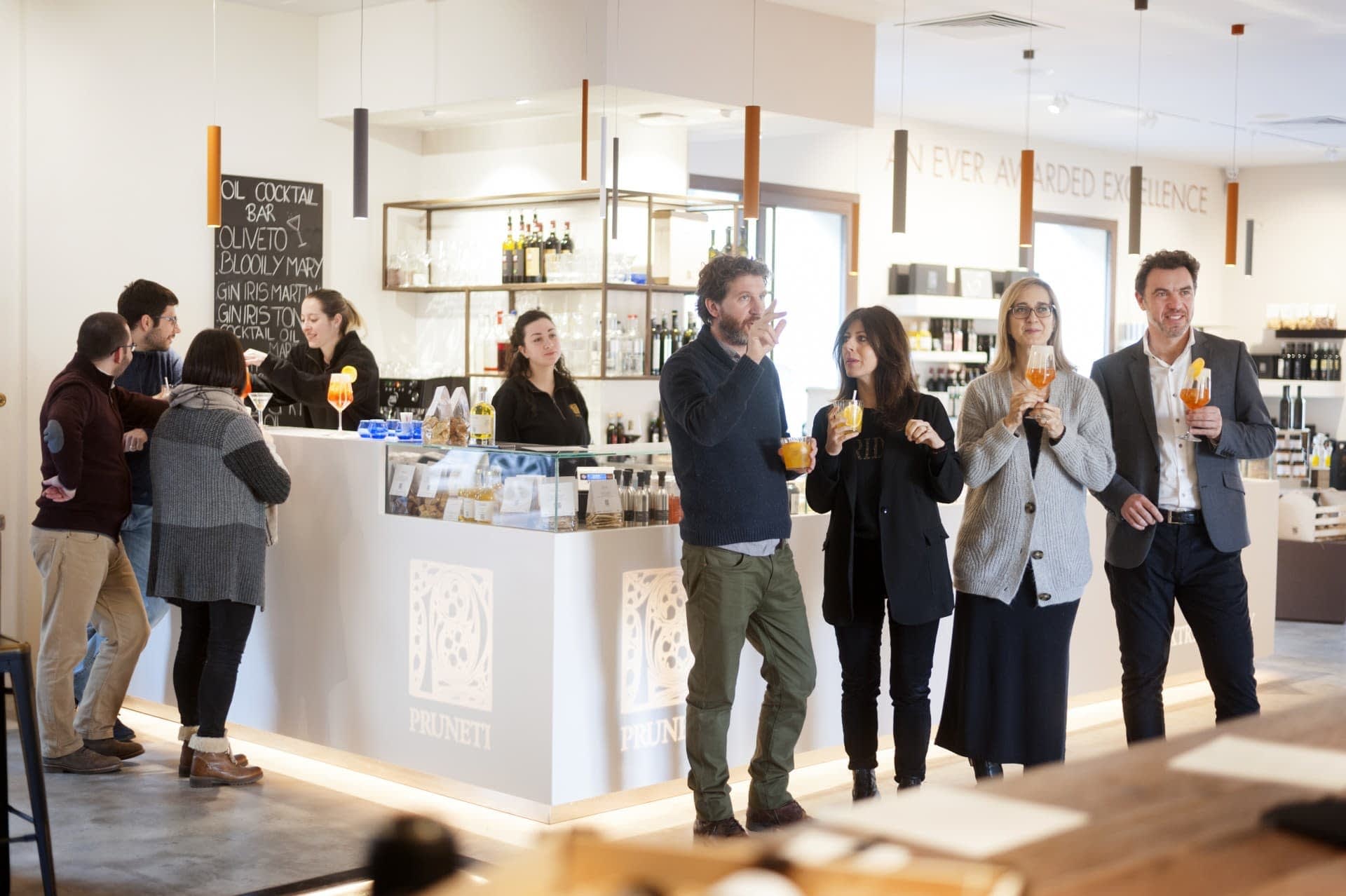
The Extra Gallery Cocktail Experience by Frantoio Pruneti
Conceived as a tasting experience, it allowed the judges to experiment with cocktails using extra virgin olive oil as the main ingredient.
The extra virgin olive oil monovarietals used by the Pruneti mixologists included Leccino, Moraiolo and Frantoio, all native to Tuscany.
The olive oil spritz, Blooily Mary and the cocktail oliveto were presented by the Pruneti experts to the judging panel, accompanied by appetizers and pickles from a collection of gourmet specialties made with the company’s olive oil.
“One of the reasons behind experiences such as our gallery is to promote olive oil culture,” Katy Lapini, Pruneti’s brand manager, told Olive Oil Times.
“Many consumers are not conscious about the olive oil they consume,” she added. “We found that by proposing this experience, we are helping many in the younger generations explore high-quality extra virgin olive oil and how it differs from the product that one can find in a supermarket.”
The judges recognized the depth and relevance of olive oil culture and history in oleotourism with an award assigned to the Museum of Olive Oil (MOOM) in Matera, in the southern Basilicata region.
The judges awarded the museum for its “Olive oil in the Sassi di Matera: technology, quality and daily life in an underground olive mill” experience, which included an unusual and evocative reconstruction of an ancient underground olive mill.
“Here, the visit begins with the description of the neighborhood, the works of recovery of the factory and the main features of an underground oil mill,” the judges wrote.
“It all merges with the history of life in the oil mills and the legacy of the Materan artist Peppino Mitarotonda,” they added. “The ceramics specifically created for the museum depict the different stages of olive oil production.”
Palazzo di Varignana, an olive oil producer and farmhouse operator near Bologna who earned three Gold Awards at the 2022 NYIOOC World Olive Oil Competition, was also among the winners.
The jury rewarded Palazzo di Varignana for a wide range of olive-related offerings, including in-house spa treatments using olive oil-based products and an extra virgin olive oil tasting guided by sommeliers.
The panel especially appreciated the olive oil treatment, “in which the oil is brushed all over the body with slow and relaxing movements, followed by a massage with the moisturizing emulsion olive oil.”
Commenting on the awards, Undersecretary of Agriculture Francesco Battistoni said, “these kinds of initiatives are crucial to give value to extra virgin olive oil, the heart of the Mediterranean diet, protect it from the attack that comes from Nutri-Score and combat the abandonment of the farming lands.”


